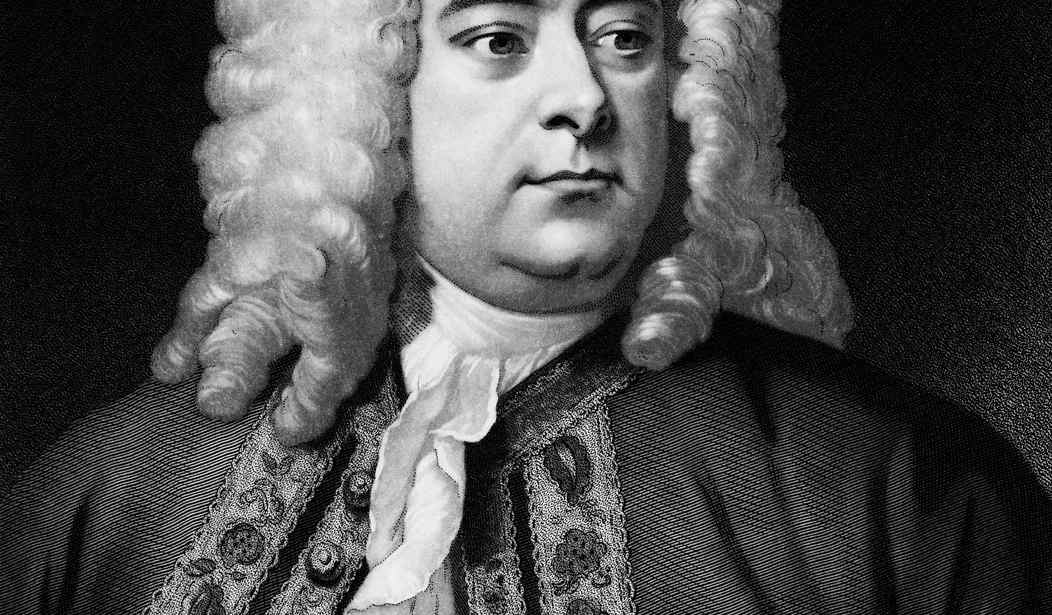The soaring choral harmonies of Handel’s “Messiah” have sounded across the world for centuries, but according to a recent report in The Economist, they will sound no longer in China. Reportedly afraid of foreign influence through music, the government has effectively banned public performances of the great Christian oratorio. But this effort only underscores the rapid spread of Christianity across the Middle Kingdom.
Ironically, the Chinese government bragged about their performances of the “Messiah” in order to attract the 2008 Olympic Games. Alas, it seems the choral masterpiece has served its purpose.
“In Yunnan province in the south-west, choirs from an ethnic group called the Miao (also known as the Hmong) still sing Handel’s oratorio ‘Messiah’, which was taught to them generations ago by missionaries,” The Economist reported.
Beijing’s International Festival Chorus (IFC), a group of sixty Chinese and expatriate amateur singers, sold out a large concert hall next to the Forbidden City to perform this great work. In fact, The Economist added that “the government noted this in its efforts to persuade Olympic officials that China was becoming cosmopolitan.”
“In 2008, with the Olympics over, the government in effect banned public performances of religious music,” the paper reported. President Xi Jinping did not publish an official declaration or sign a law, however. “As is the way of things in China, there was no law or overt prohibition. But choirs found it harder to sell tickets or get licenses for venues.”
“With fewer performances, audiences dwindled, too. In Beijing the IFC soldiered on, giving ‘private’ performances each Christmas. But its ‘Messiah’ of December 2016 was its last.”
Current President Xi Jinping declared last year that the ruling Communist Party must “resolutely guard against overseas infiltration via religious means.” According to The Economist, local authorities have taken this as a signal to suppress Western music.
The party’s former leader, Jian Zemin, reportedly played a recording of Mozart’s “Requiem” on hearing of the death of Deng Xiaoping in 1997. But Jinping seems set on reversing this “foreign” influence.
Ironically, Handel’s “Messiah” elevates no foreign power. Rather, the composition is a set of verses from the Old and New Testaments of the Bible. It does, however, include multiple verses praising Jesus Christ as king. Most notable is the “Hallelujah Chorus,” which declares, “The kingdom of this world has become the kingdom of our Lord, and of His Christ, and of His Christ. And He shall reign forever and ever.”
Christ is indeed a king in China, as He is the true king of Christians across the world. While Christianity is heavily regulated in the Middle Kingdom, the religion has spread like wildfire.
According to sociologist Rodney Stark and co-author Xiuhua Wang in A Star in the East: The Rise of Christianity in China, there has been a 7 percent increase in Christians every year in China. In 1980, there were approximately 10 million Christians there. In 2007, that number had climbed to 61.1 million. By 2030, they estimated, there will be 294.6 million Christians — nearly the entire population of the United States.
Indeed, Mission Network News reported in June that the ranks of Christians have increased by about 100,000 every year.
Amidst this growth in Christianity, China has been cracking down on religious freedom. Most notably, the country banned Islamic names in a Muslim-majority province. It also seems the country is suppressing Christian music.
This is a true shame, because Jesus Christ explicitly did not call for a revolution against the Roman Emperor in his time, even though the Jewish people were itching to throw off the yoke of Caesar’s empire. In Romans 13, Saint Paul urged Christians obey the ruling authorities, because God has ordained them.
Jesus told his disciples to pay taxes, demanding a higher form of allegiance to God. Pointing to a coin and noting that it bore the image of Caesar, the founder of Christianity told his disciples, “Render unto Caesar the things that are Caesar’s, and to God the things that are God’s.” This is a profound statement. Jesus was telling his disciples to pay taxes, but to put their ultimate allegiance and faith in God the Father, in whose image they were created (Genesis 1).
When governments like China’s outlaw Christian music for fear of losing political power, they are tacitly acknowledging that they are tyrannical. Christianity is only a threat to any government that requires ultimate allegiance and identity from its subjects.
Unfortunately, Communism is such a totalitarian ideology, and while the current Communist Party has accepted some Western notions of freedom, it still follows a totalitarian ideology.
Xi Jinping’s attempt to ban performances of Handel’s “Messiah” therefore shows that he is aware of the spread of Christianity in China, and it suggests he feels threatened by it.
Christianity has spread in the context of repression, most notably under the Roman Empire, and some have argued that persecution itself is good for the spread of faith. Jesus Himself promised persecution, but promised that the joys and honors of Heaven more than make up for it.
Not only does Xi Jinping’s attempt to ban the “Messiah” suggest his fear of Christianity, but it will also prove utterly ineffective in stopping the spread of the religion. “And He shall reign forever and ever” wasn’t talking about Xi Jinping, or even the Communist Party. But it may be a prophetic chorus over China.









Join the conversation as a VIP Member